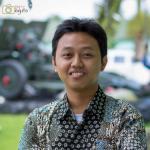ASIA
Over 100 climate change practitioners and city leaders have gathered in Semarang, Indonesia to revisit successes, reevaluate challenges and look ahead to new ways of advancing city resilience during the Learning Forum of the Asian Cities Climate Change Resilience Network (ACCCRN). Taking place over the course of the next two days, the event has been convened by The Rockefeller Foundation and Mercy Corps Indonesia.
Travelling to Indonesia from different cities across Asia and the globe, participants will share accumulated knowledge as well as tried and tested approaches while discussing new insights into how to make cities in the region more resilient.
“It’s a chance to share, reflect and move forward,” said Ashvin Dayal, Associate Vice President and Managing Director, Asia, of The Rockefeller Foundation.
Mr. Dayal stressed, “We’ve made lots of mistakes, but also had lots of successes,” adding that ACCCRN members have learnt and contributed to urban resilience concepts as well how to translate these challenging concepts into practice.
The initiative has evolved into a fully-fledged network of urban climate change resilience (UCCR) professionals and institutions that is being managed through national nodes based in India, Viet Nam, Thailand and Indonesia, more recently joined by Bangladesh and the Philippines.
Numerous organizations have been involved in the development of the initiative, many of whom are present at the forum. Eyes are now on the replication and scaling of the multiple lessons learnt as skills and experience mature within the network.
Jo Da Silva, Director of ARUP International Development during a keynote address outlined that continuing efforts on urban climate change resilience (UCCR) are crucial, both in Asia and in other regions of the world. Taking stock, Da Silva outlined how since ACCCRN’s inception almost 9 years ago, the rationale for acting on climate change through urban resilience building has never been stronger.
In 2007, when initial discussions were taking place at The Rockefeller Foundation about the interconnected challenges of climate change and urbanization, Da Silva suggested that many considered climate change to be “a problem that people thought could be fixed”, in particular through the mitigation of greenhouse gases.
Because of natural catastrophes such as Hurricane Katrina in the US, or Superstorm Haiyan in the Philippines, as well as a growing body of research, the rationale driving the urban adaptation and resilience agenda has grown.
“UCCR was coined by ACCCRN and is part of a paradigm shift that is going on globally and that focuses on the necessity for adapting to climate change risks,” said Da Silva.
She also remarked upon ACCCRN’s pioneering work in understanding cities as systems. This has encouraged local and national governments to go beyond an understanding of urban development as “’roads and nodes”, inciting cities in Asia to work together so that “man can live with, rather than kick nature out”.
Her speech highlighted how ACCCRN has demonstrated the value of “learning by doing” by “breaking down the barriers” of orthodox approaches within local governance processes. Described by the International Institute for Environment and Development as “Adaptive Governance”, ACCCRN has helped local governments to capitalize on inherent resources in order to better respond to climate change pressures.
Against the backdrop of the Sustainable Development Goals and the New Urban Agenda that will be launched this year, potential opportunities for network members include financing from facilities such as the Urban Climate Change Resilience Trust Fund managed by the ADB and DFID’s International Climate Fund.
0 comment(s)







